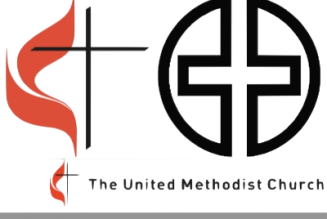Nous poursuivons la publication des conférences prononcées au colloque “Narratifs religieux alternatifs et formes de déviation sociale” .
Après L’Ordre du Temple Solaire ou la nostalgie des chevaliers sans croisade, voici la conférence (en anglais) de Constantine POPKOV, consultant politique et porte-parole du fond Shimon PERES: “Personal Growth and Psychological Issues in Questionable Religious Organizations”
Constantine POPKOV
Personal Growth and Psychological Issues in Questionable Religious Organizations
Good morning, my colleagues. Thank you for having me here. And let me share some of my thoughts on the matter that we are discussing. So, this is the matter of utmost importance, and it’s much more complicated than it seems to be. So, clearly people are driven by their beliefs. And if those beliefs are dangerous or destructive or self-destructive, then such people turn themselves into a weapon of destruction and they are a threat to society. This is very clear. My profession is very interesting. I work with leaders and help them prepare for public speaking. I’m a speechwriter, an advisor for strategic communications. I work with the minds and thoughts and words of leaders. And I’m always paying attention to the values and beliefs that people express verbally. Let me put it in a context. There’re stages of personal growth and spiritual growth. And on every stage, there are different values and beliefs that people adhered. And as a human being evolves mentally, psychologically, and spiritually, then those beliefs change. And if we refer to, let’s say, Jane Loevinger, an American psychologist, or Scott Peck, another American psychologist, they describe the stages. And so let me just briefly mention those stages, because they’re important for us to assess those religious beliefs that we are dealing with. The first stage is called chaotic or antisocial. On this stage, a human being is basically driven by emotions and impulses and is not capable of dealing with other people and society in a civilized way.
So this is basically a destructive stage. Little children and then adults who are dependent, who are not capable of living in society, they live in this stage, so called chaotic, antisocial. Then the second stage, as we grow up, is called conformist. It’s conformist. So, basically, we conform to the rules of the group. We learn to live by the rules that other people will basically impose on us. And this is basically the level of family education or traditional religious education or school education. And as we progress in our personal growth, we go to another stage, which is called in psychology individualistic. Basically, we move beyond the conformist level, and we start developing our independent opinions and views. And this is the stage where people are basically independent. They rely on their own opinions, and they don’t trust basically anyone except themselves. And then the fourth stage is called integrating stage, where people learn how to integrate with others, how to integrate with people who have different opinions and different beliefs, people of different nationality or race or political views. And basically this is the line along which we evolve as human beings, but not everybody grows up, in fact. A lot of people just get stuck on a chaotic and antisocial stage. And this is what we need to pay attention to, because if somebody has chaotic or anti-social or destructive beliefs, they’re very likely to end up in a certain group and they will conform to destructive views, or beliefs, or values of that of that group.
And this is what we need to pay attention to. If we talk about questionable religions, we need to pay attention to what beliefs they build their group around, and if they are clearly destructive and dangerous to society. We absolutely need to deal with these issues. Because if we have, let’s say, religious extremism, or child abuse, or human rights violation, or a religious group professes a government change in a violent way, they violate the law, this is very clear. And they need to be dealt with, but they need to be dealt with according to what laws or regulations they violate. And this is not as easy as it seems, because once we start fighting against some people that we believe are dangerous, we need to ask ourselves, how do we diagnose how dangerous or evil those people are? Do we assess them according to our own personal, subjective opinion? Or there’s a more objective framework that helps us assess which level of personal or spiritual growth they are and what level of values and beliefs this group represents. I have mentioned that if they are clearly chaotic and antisocial, this is very easy. But what if those people are not doing anything harmful to others and they just profess the views that are different from ours? Can we still call them a sect? Can we call them a dangerous religious group? And I bring up this point because this is very important, because it is very easy to fall into a trap of hatred. It is very easy to fall into a trap of religious persecution. And we need to be very careful with this because if we, let’s say, stand against somebody because they violate human rights, if they do something clearly and obviously dangerous to health, or mental health, or security, or stability of the State, this is very clear. If somebody goes after somebody, just because they are different and they hold different beliefs, different from ours, or they’re different from us in terms of race, or political views or nationality, this is a very slippery and dangerous path and we really need to be very careful about that. And then there are a lot of people who might be much more advanced in their views, their beliefs and their values, and they can be hated or persecuted by others because they are different. This is not an easy matter. We really need to look into what drives people, what they believe in. But much more important is what they actually do. Because the actions show their true beliefs and true values. And in this context, I think that we need to bring this discussion to a level of why do people join such groups? What motivates them? What are they seeking? Why are they joining alternative or questionable religious organizations instead of going to established and traditional religions? And this is a very, very important issue.
Clearly such people are frustrated, so they are unhappy, and they are looking for answers. And what makes me wonder is why do they turn for answers to questionable religions? Why aren’t they satisfied with those answers that are already there? What makes those questionable organizations attractive to people who are frustrated or in search of meaning or in search of answers? I think that the real danger is not the existence of such organizations. Well, I will give you an analogy, because I work a lot with youth, with students giving a lot of lectures. And one of the issues that I bring up is the issue of addictions. Some people believe that if, by miracle, we eradicate drugs, alcohol or cigarettes out of this world, then people will just stop being addicted. But will they? They won’t, because if you take away the source of addiction from them, they will turn to another thing they will get addicted to. Because addiction is a state of mind, a state of underdeveloped, dependent mind, which, in the beginning of my speech, I called the chaotic and anti-social state. And therefore, the only way to beat addiction, to win addiction is not by taking the source of addiction away from the person addicted to it, but by motivating this person to grow as a person, to motivate, to inspire, to go to another stage and outgrow this addiction.
And I would say that totalitarian sects are a form of addiction, something similar to drug addiction or alcohol addiction. And if you destroy or ban these organizations, these people who are in search of this kind of emotional addiction, they will turn to some other form of addiction and maybe even more harmful and more dangerous. It’s my opinion that we absolutely need to fight with any forms of felony or illegal activities. We absolutely need to protect human rights. But if we look into the root cause of what we are discussing, it’s not the questionable religions, as I say, but the underdeveloped state of mind of our society, of people who need answers, but they don’t get those answers. And it is the responsibility of those people who understand things like spiritual growth, personal development, education and values, beliefs. I believe, this is the responsibility of such people, as the Bible says, to be the light to this world. We need to be the light to this world, so that those people turn for answers to us and not to those strange and questionable and doubtful religious organizations. That means that we need to be on the front line and share our values and be role models that especially young people will want to emulate. And there’s one more thing that I wanted to mention.
My message is this. I think we should rather focus on how to be the light to this world rather than fighting those people who, for some reason, are off track. And here there’s a danger, because we need to also ask ourselves – what motivates me and what beliefs do I profess personally? And if I’m doing this for my faith and my love for God or am I driven by intolerance and hatred to other people? This is a very dangerous path, and I think that we need to orient ourselves properly so that we really follow our beliefs and be an example for others. And then more and more people will join the right organizations and then, all these questionable organizations will basically lose the meaningful existence. So basically, this is what I wanted to share with you.
Raphaëlle Auclert: Thank you very much, Mr. Popkov, for your insightful look. It was very interesting, and it was right to get interested in the roots of the problem. Of course, just to fight against evil is not enough. We have to defend the good and the good values. So, thank you very much. I switched to French language again. Merci beaucoup, Monsieur Popkov, pour votre exposé extrêmement intéressant et qui est très complémentaire avecles autres intervenants.








Meltoisan
Je ne suis pas allé plus loin que le “Thank you for having me here” ! Pas un peu mégalo le mec ?
Je sais, c’est la tournure anglo-saxonne pour “merci de m’avoir invité” qui est quand même plus classe…
Mais “merci d’être venus si nombreux” n’est pas mal non plus. La politesse à la française ? Connait pas !